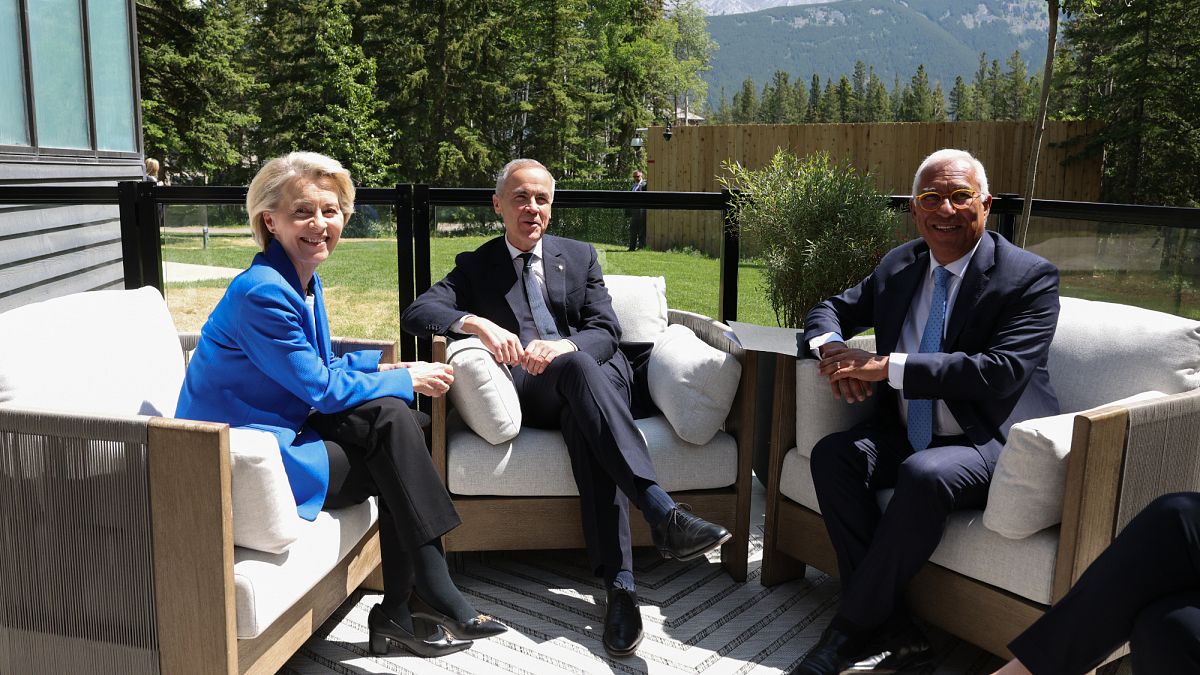Published on
The EU and Australia announced on Wednesday they will start talks for a defence and security pact, with the bloc expected to strike a similar deal with Canada next week, a first step that could eventually allow both NATO allies to take part in the EU’s €150 billion programme to boost military production.
“I very much welcome the EU’s offer for a Security and Defence Partnership and Australia will warmly take it up and commence work immediately,” Australian Prime Minister Anthony Albanese said in a joint statement released following a meeting on the sidelines of a G7 summit in Canada.
“This will open the door to joint defence procurement opportunities and will benefit both our industries and our security,” he added.
Brussels and Canberra emphasised their cooperation in the Indo-Pacific region, where China’s military is increasingly active and assertive, and which has become a key pillar of Washington’s foreign policy.
“In a time of rising tensions and strategic competition, trusted partners must stand together,” von der Leyen said in the same statement. “Europe and Australia’s enduring friendship enters a new chapter today.”
The EU and Australia are also currently negotiating a Free Trade Agreement but the talks for the SPD will remain separate.
A Security and Defence Pact (SPD) – like the one the EU signed with the UK last month – is one of the likely deliverables of the EU-Canada summit to be held on Monday in Brussels between European Commission chief Ursula von der Leyen, European Council president Antonio Costa, and Canadian Prime Minister Mark Carney.
Striking an SPD is the first required step for third countries to take part in the EU’s €150 billion SAFE programme to boost joint procurement.
The instrument, part of the EU’s Readiness 2030 plan to strengthen the bloc’s defence sector and capabilities, includes a so-called European preference under which some 65% of the weapon systems bought must be made in the EU or by a third-country manufacturer provided they have an SPD with the bloc.
A second agreement, allowing for the third country’s participation in SAFE, will also be required.
SAFE was approved by member states late last month and governments now have a few months to submit to the Commission the joint procurement projects they want to take part in. The EU executive could then start releasing money to fund these projects before the end of the year.
France announced on Tuesday that Bulgaria had joined its initiative for joint acquisitions of THALES radar intended to strengthen aerial surveillance.
“Other countries have already shown a strong interest in this approach and, with the support of the initial partner countries, are expected to join the cooperation in the near future,” the French ministry for the armed forces said.
